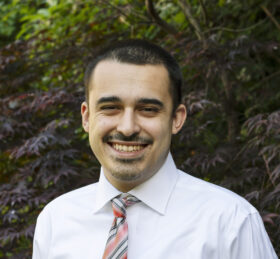The Career Closet offers gently used professional attire for the students on the Sacramento campus. It gives our students the opportunity to better prepare for the transition into their chosen profession. Whether it be for an interview or your first day on the job, stop by to assemble the perfect outfit that you can keep!
The Career Closet welcomes any professional attire donations in good condition. Questions? Contact Maya Alexandria (malexandria@pacific.edu).










